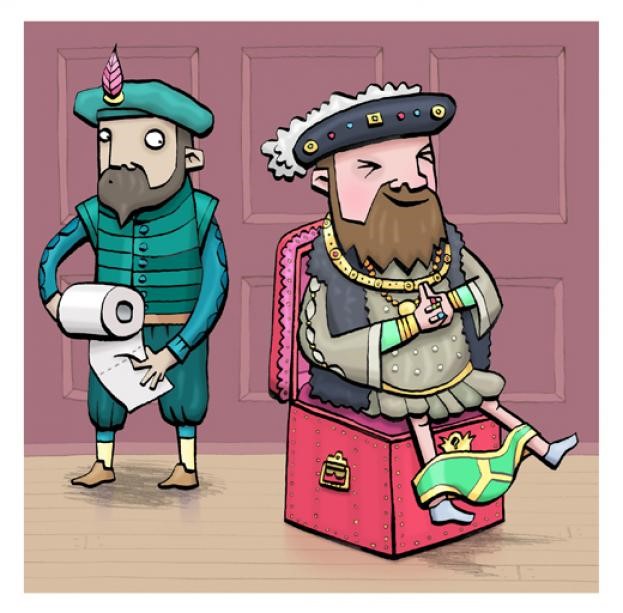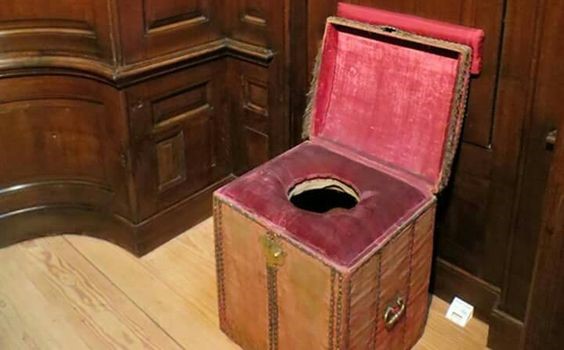THE GROOM OF THE STOOL
King Henry VIII has cooks and grocers, bakers and butchers, ministers and footmen working for him around the clock, but none get as up-close and personal as the “Groom of the Stool.”
Two of stool’s main meanings – a small chair, and a unit of poop – come from The Groom of the King’s Close Stool” as this vital and trusted job is called. It requires loyalty and discretion. Though less than glamorous, the Groom of the Stool is one of the courtiers most sought-after positions. For it is upon the groom that the king’s power, health, and wealth depend.
Each morning, before he meets with his privy councilors to discuss matters of State, Henry VIII has an intimate meeting with his Groom of the Stool.
The groom is responsible for making sure that all the king’s toileting is carried out properly and efficiently. There has been scholarly debate about whether the groom wiped and washed the king’s butt, yet that is almost certainly the case, especially after Henry becomes so obese that it would be impossible for him to reach around behind himself without an artificial aide. Why use a tool when the groom is at hand? The groom also must examine the feces and take it to the royal physicians, so there is no excuse for being overly delicate.
The Groom of the Stool also tracks all information related to the king’s body, including His Majesty’s health. Then the groom supervises a thoroughly cleaning of the toilet. The people of the time have no knowledge of germs, but they do know that an unclean toilet can cause illness, even death.


Besides perhaps cleaning His Majesty’s anus and supervising the cleaning of the royal toilet, the groom has other serious responsibilities. The groom keeps the spending in check. Henry spends so much money that he is constantly on the verge of bankruptcy. Moreover, the groom becomes the king’s confidante. For where else other than church may a king bare his soul than when his butt is bared on his minor throne?
The groom selects Henry’s favorite drink each evening and procures a lovely bedmate to keep His Majesty company. For when it comes to women and wine, Henry has a huge appetite.
Four Grooms of the Stool serve King Henry VIII during his rule that lasts for 38 years. The first is Sir William Compton, who holds the job for 17 years.
He is followed by Sir Henry Norris (1526–1536), an extremely handsome, cultured, and articulate young man. He is engaged to be married but breaks it off after Henry marries Anne Boleyn. When she thinks no one is around, she tells Norris how handsome he is. He desperately warns her not to talk that way – and for good reason. In a castle honeycombed with secret passages, there are many ways to be overheard.
Which is exactly what happens. Henry is made aware of her comment. He wants rid of her anyway, for being childless. Her comment spells treason. Both Anne and Norris are beheaded.
Replacing Norris is Sir Thomas Heneage and then Sir Anthony Denny. They are wise enough to avoid court intrigue. Henry likes Sir Denny so much he gives him a special gold key to lock or unlock Henry’s personal chambers. Denny also has control of the king’s stamp, which means that, at least symbolically, he can sign the king’s name.
